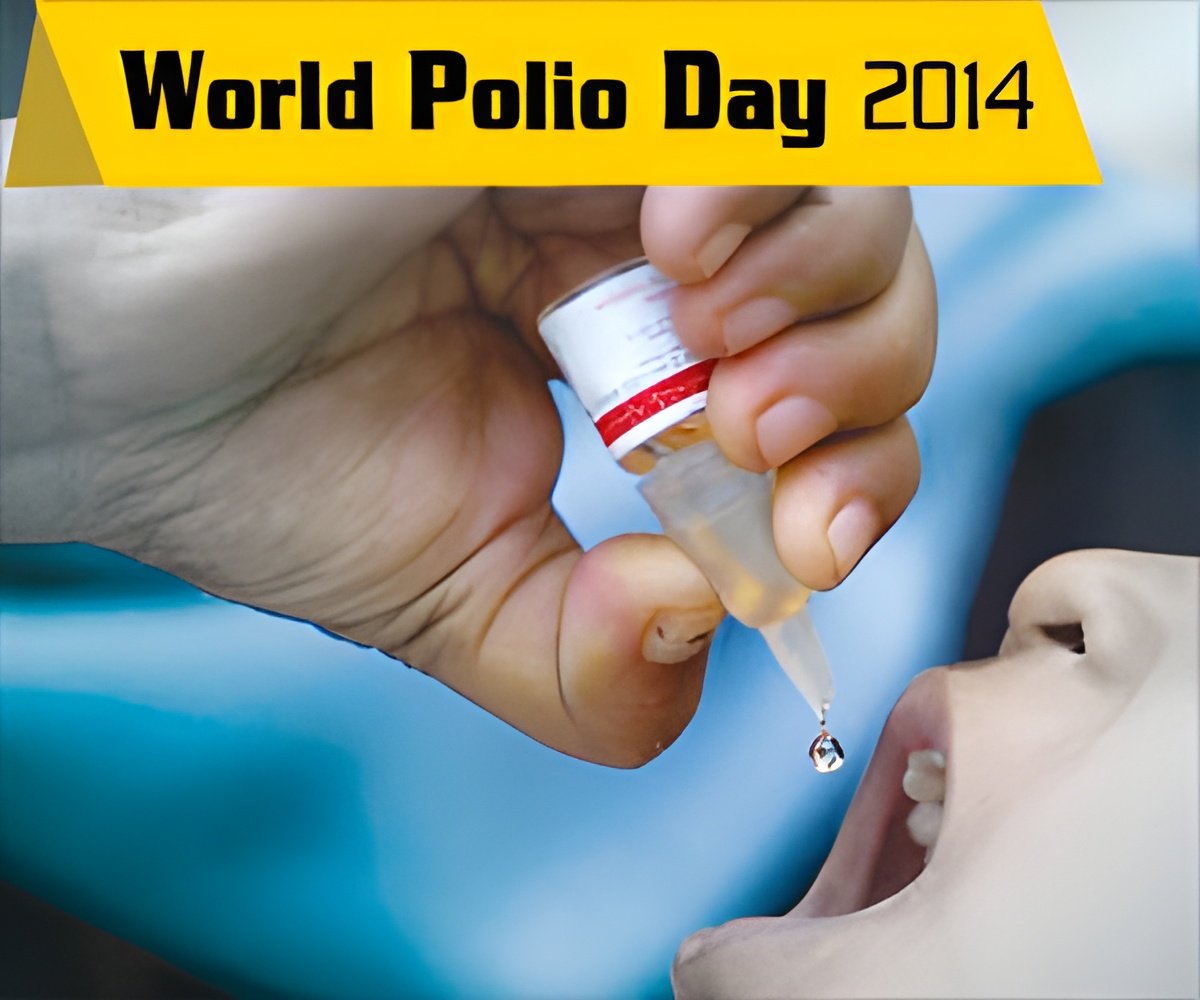World Polio Day, observed annually on 24th October, is a day to raise awareness on ‘polio’ and a reminder of our monumental victory over polio.

In majority of the cases, polio is a mild ailment with flu-like symptoms and no long-term effects. However in about 1% of the infected cases, the virus infects the bloodstream and strikes the nerve cells, triggering muscle ache or spasms and, ultimately, paralysis.
Commonly, paralysis or muscle weakness remains for life. In some cases, the chest and throat may be paralysed and the affected-person may die without breathing support.
Although it assaults mainly young kids, polio can also infect older people. Polio has likely existed since prehistory times. Polio epidemic was at its peak in the 1940s and 50s, and it would paralyse or kill over half a million people worldwide every year.
Jonas Salk developed a vaccine based on inactivated poliovirus in 1952. After testing for two years, it was introduced to the world in 1955.
In 1961, Albert Sabin developed a vaccine from live attenuated poliovirus, which has become the vaccine for universal use. The success of the vaccine led to the establishment of the Global Polio Eradication Initiative (GPEI) in 1988. Since then, the larger initiative has reduced polio worldwide by 99%.
In 1988, the World Health Assembly passed a resolution to eliminate the deadly polio by 2005, setting up the Global Polio Eradication Initiative (GPEI). At that time, more than 125 countries were polio-endemic.
Although polio has been eradicated in most countries, the risk posed by the crippling virus persists, says WHO. Currently there are still three endemic countries left in the world - Nigeria, Pakistan and Afghanistan where Polio persists.
The final battle to eliminate polio completely will not come cheap. It will take billions of dollars to achieve the goal by 2018 and we must continue the fight to end this awful disease.
Meanwhile, Rotary announced $ 8.4 million in grants to combat polio in Nigeria. The funds will be used by UNICEF and WHO to support high quality polio immunization campaigns in Nigeria.
India Celebrates Victory Over Polio
The WHO has officially declared India polio-free, with no case of the dangerous disease being reported in the country for three years.
This hard-won war against polio is validation that strong political will and effective cooperation between government and agencies like WHO, Rotary clubs and UNICEF can bring about concrete changes with far-reaching consequences.
While government and private partnerships played a vital role, ultimately this triumph belongs to the strong network of field workers, community health specialists and volunteers, who worked hard to ensure that no part of the nation was inaccessible and no child too far away to vaccinate.
In each National Pulse Polio Immunization round, 2.4 million field workers under 150,000 overseers visited over 200 million households to ensure that the nearly 172 million kids were immunized with the Oral Polio Vaccine.
Mobile and transit vaccination groups immunized children at railway stations, at bus stands, market areas and construction sites areas.
Overcoming the denial of the vaccine by certain communities was perhaps the most significant achievements of the polio initiative in India.
India realized simply asking for children to be vaccinated would not work. The real challenge was to become friends of those poor people who were often very lonely, and quite frightened themselves.
Bollywood and India's love for cricket made things much easier. Many public service advertisements by celebrities like Shah Rukh Khan, Amitabh Bachchan and Virender Sehwag ensured that people would at least listen.
Even after the achievement, the country is committed to ensure that the disease will never come back again. On Friday, top doctors in the country pressed for early introduction of injectable polio vaccine, saying it is more effective than the oral form and it can eliminate the risk of vaccine-polio. They cautioned that any delay in introducing could have detrimental effect on public health.









